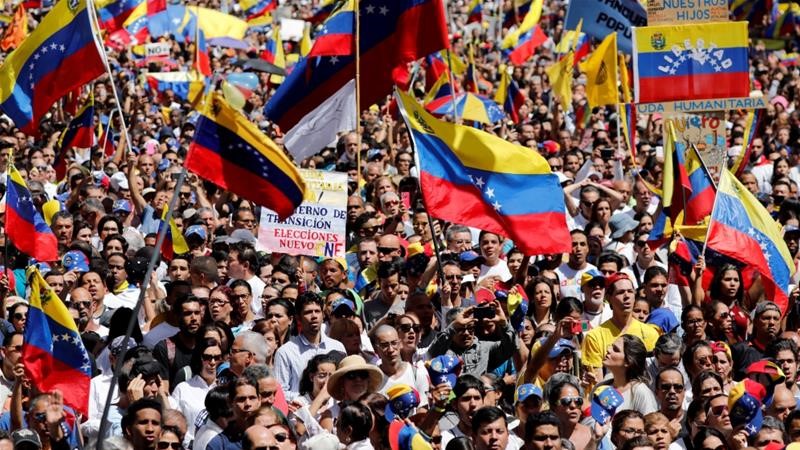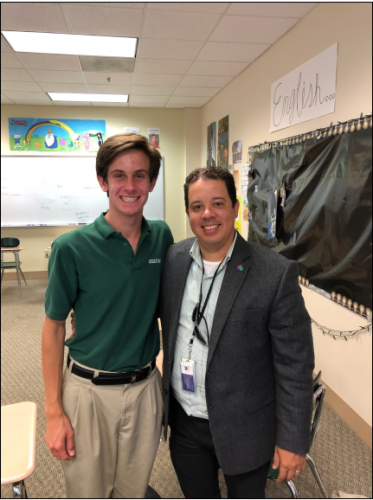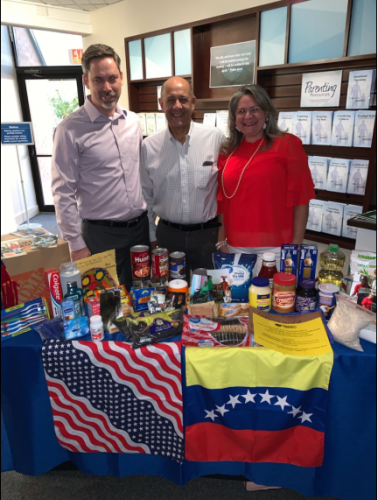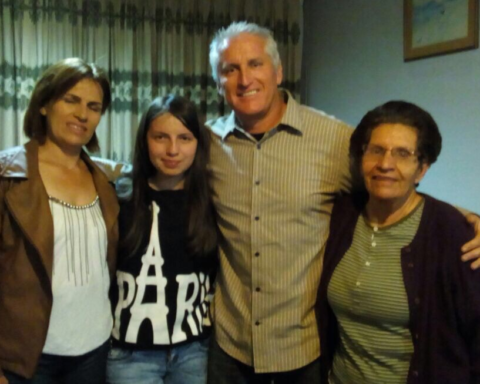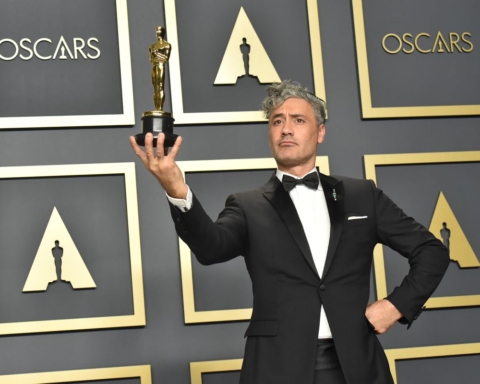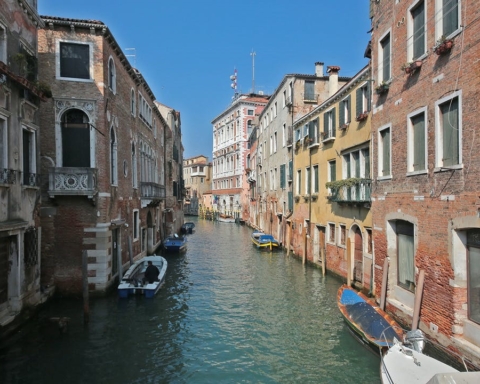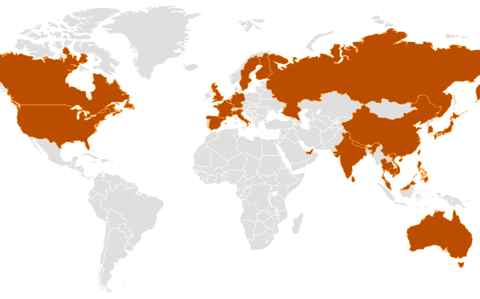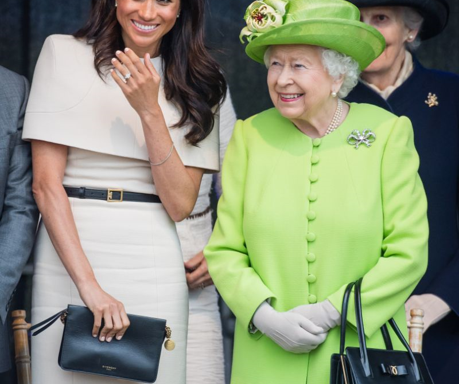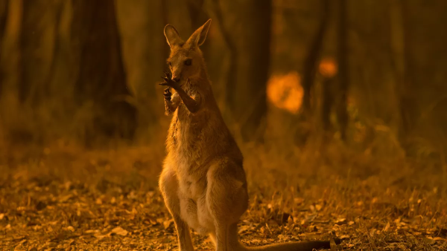The economic crisis in Venezuela is just as significant to people living in the United States as it is to the millions of people who have fled the country in the past five years. It is a crisis that gradually brought Venezuela’s oil rich economy down from being the strongest Latin American economy to the weakest in just a few decades.
This has had a profound impact on economy, not just in South America, but globally affecting everything from gas station property, to increased crime, to overcrowding social service programs. One might think that such a grave situation would be closely covered and reported to all those whom it may concern, a few members of the community were interviewed about the crisis.
When sophomore Will Fuller was asked, “what comes to your mind when you hear the word Venezuela?” he said, “Poverty, dictatorship, hardship and suffering.” When asked what he knew about the crisis and whether he felt well informed about the issue, Fuller said “I know the country is being held together by strings and that Nicolas Maduro (the dictator) stays in power by only benefiting his own military. And I like to think that I am well informed, but news today is hardly reliable.”
The same set of questions was asked to Spanish teacher Guillermo Vallejo. Vallejo is from Bogotá, Colombia and has stayed better informed than most. He said that when he heard the word Venezuela he thought of “poverty, extreme socialism and violence.” When asked about how much he knows, he was able to talk about how Venezuela fell through economically due to a series of bad “presidents” who made bad investments with government money. Vallejo also commented when asked about whether we are well enough informed here in the United States that “we need to be more aware of what’s happening globally. Unfortunately, people are more concerned with sports than things like this.” Additionally, senior Beau Blanton said, “If we were more adequately informed, we would have more reason to care about this crisis.”
Now that common American ignorance is out of the way, it’s only appropriate to address exactly what has happened in Venezuela. The Green and Gold was able to interview a Venezuelan native named Javier Cuesta Torres, who works as an account executive at Univision to give us details, perspective and personal accounts of everything that has happened in Venezuela, and how it has affected him.
Venezuela was a thriving nation with rich culture and people; in fact, it was very similar to the United States’ economy. It wasn’t until about 1980 until things began to turn south. Just like in modern America there were two main political parties, the A.D and COPEI. Nowadays in the U.S, there was much discontent with the way things had been, and people wanted to see change in Venezuela. This continued for a long time, and in 1989 a man named Hugo Chavez attempted to overthrow the government in a brutal siege on the capital city of Caracas (Javier’s hometown). This attempt was unsuccessful, and Chavez was thrown into prison for what was likely to be the next 20 to 30 years. However, after only about four years Chavez was released from prison by the sitting Venezuelan president. After this, Chavez decided that he would run for election in the next presidential race. This time, he was successful in becoming the country’s new leader.
From the very beginning, Chavez was only looking out for himself. He began making deals with countries such as Cuba, South Korea, Russia and China. These deals provided the other countries with incredibly large amounts of petroleum, which is Venezuela’s main export, for essentially nothing but amnesty. In addition to this, Chavez started disrupting the balance that was established in Venezuela by adding members to the Supreme Court and Congress. He even added a new branch full of people who he was sure would support him. This gradually gave Chavez all the power he needed to make sure that he would win the next upcoming elections and remain in power for as long as he desired. Meanwhile, he slowly began limiting media and news outlets to prevent anyone from calling him out or criticizing the things he was doing.
Chavez remained in power until 2013 when he died of cancer. According to Torres, there was a lot of discrepancy over Chavez’s supposed death. For instance, Chavez died right around the time of the next election and there was no one in the world he wanted more to take his place than a man named Nicolas Maduro. Maduro was not immediately well received, and it is believed that Chavez faked his own passing in order to gain sympathy for his party and Maduro. Although many believe Chavez died in the year after this election, there is still a lot of discrepancy about this. Since then, Maduro has been Chavez 2.0 and has only wasted more money in fruitless investments and deals, currently due to inflation, basic goods such as a dozen of eggs cost around 90% of the average salary.
The crisis in Venezuela might all seem like another tragedy far away from home, but it most certainly affects more than just the Venezuelan people in Venezuela. Due to Venezuela’s government gaining full control of big businesses, many big businesses such as Coke and Chevrolet have left the country entirely. Other companies such as Citgo and 7/11 which were started in Venezuela, have been incredibly limited by the government, and the government uses these companies to buy land in the United States to open stations at to turn a profit. These are just a few of the main economic effects this tragedy has on the rest of the world.
The crisis has affected the global economy without a doubt, but it also affects people that live in Atlanta. People that we interact with daily, such as Javier Torres.
Torres came to the United States 17 years ago, and three years into Chavez’s presidency. He came here in pursuit of the American Dream and for a few years took classes at universities in the greater Atlanta area. He has since graduated from college and worked for about three years for the AJC (Atlanta Journal Constitution.) He’s now been with Univision for four months. Without a doubt, he has had a very impressive and inspiring career coming in as an immigrant and then having so much success. However, despite all this success , Torres has had to deal with many hardships. For instance, his family has been dispersed all over the world; his sister in England, brother in Florida, and his parents and other brother in Colombia. Furthermore, this October Torres will be flying to Colombia for his family’s first reunion together in over seven years. Unfortunately, due to the lack of proper medical supplies and basic nourishment for so many years in Venezuela, Torres doesn’t think his parents have more than a few years left to live, despite having slightly better resources in Colombia.
Though this situation is unfortunate and overwhelming, there is still hope. For the people in Venezuela, there is currently a man named Juan Guaidó who is seeking to officially replace Maduro in Venezuela and turn conditions around. There’s more that can be done than just wait on political action in a country that seems so distant. There are plenty of local charities that are trying to do their part in looking for volunteers. For example, there are many charities that send monthly care packages full of basic hygiene necessities for people in Venezuela. It is still possible to make a difference all the way from Atlanta. We help however we can, and most importantly, stay informed with what’s happening, so we can know how to help as things change.

